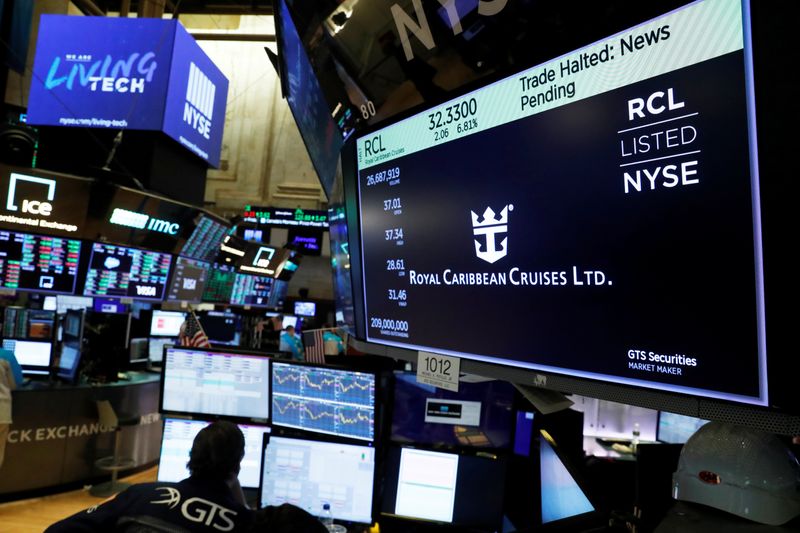(Reuters) - Royal Caribbean (NYSE:RCL) Group lost $1 billion-plus in the fourth quarter as the coronavirus crisis kept its cruise ships ashore, but pointed to strong booking trends for 2022.
Cruise operators have been shoring up cash reserves by issuing new shares, selling assets or raising billions of dollars in debt over the last few months as the COVID-19 pandemic brought the industry to a virtual standstill.
With its ships not sailing, Royal Caribbean's total revenue for the quarter plunged to $34.1 million from $2.52 billion last year. Analysts had expected a revenue of $35.6 million, according to Refinitiv IBES data.
However, the company said bookings for the first half of 2022 were within historical ranges and at higher prices, underlining a strong demand for cruises.
Royal Caribbean, which posted a rare negative revenue last quarter, said it expected to incur a net loss for its first quarter and the 2021 fiscal year.
Several analysts expect Royal Caribbean and its peers Carnival (NYSE:CUK) Corp and Norwegian Cruise Line (NYSE:NCLH) Holdings Ltd to resume voyages gradually in the back half of this year, as governments in the United States and other major markets vaccinate thousands of people.
As of December end, Royal Caribbean had about $4.4 billion in liquidity, up from about $3.7 billion at the end of the third quarter, after it raised $1 billion in a stock offering during the fourth quarter.
The operator of "Oasis of the Seas" and "Symphony of the Seas" cruises posted a net attributable loss of $1.37 billion, or $6.09 per share, in the quarter ended Dec. 31, compared with a profit of $273.1 million, or $1.30 per share, a year earlier.

On an adjusted basis, the company lost $5.02 per share, compared with analysts' estimates of a loss of $5.20.